People, firm legal action hold the key
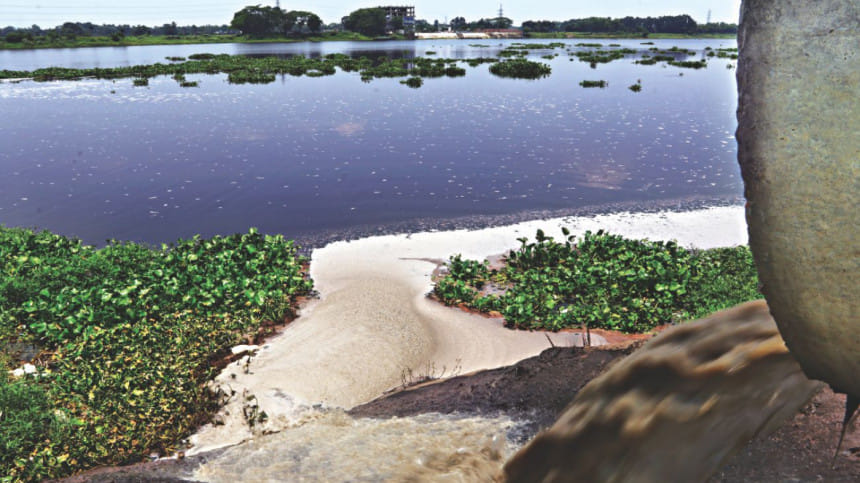
Eminent personalities yesterday said people's movement and strict legal actions are a must to save the dying rivers from the clutches of land-grabbers and polluters.
Distinguished professionals, academicians, NGO and top business leaders and others said this at the inauguration of a photography exhibition titled 'Save Rivers, Save Dhaka' held at the South Plaza of the Jatiya Sangsad Bhaban.
Private television Channel i and The Daily Star jointly organised the event as part of the ongoing campaign against the pollution and encroachment on the rivers surrounding the capital.
The speakers urged the government to enact laws to save the rivers from the powerful and ruthless river-gobblers.
"Aggression on the rivers is going to be suicidal for us unless the government and general people do not join hands," said noted academician Prof Khan Sarwar Murshid.
Dhaka's lifeline Buriganga River has almost died of pollution and encroachment during the last 20 years, he said, adding that it is an unbearable experience to see the rivers dying.
The rivers around Dhaka are arteries not only of the city but also of human lives here, said Murshid, adding that Dhaka will turn into an uninhabitable city posing a serious health hazard to city people once the rivers are dead.
"River-grabbers are enemies of the society; death of rivers will give rise to mental poverty of people," he said, adding, "The initiative taken by The Daily Star is great.
Noted architect Shamsul Wares was sceptical about the government's ability to stop the long hands of encroachers.
"It is like crying in the wilderness, as the protectors turn out to be grabbers," he said and added, "The offenders constitute a major section of those whom we appeal for protection."
Noted economist and environmentalist Prof Muzaffer Ahmad said that the prime minister could bring about a change if she takes interest in the issue.
But a continuous people's movement is a must to save the country's entire river system, he added.

Agriculture Minister Motia Chowdhury said that maintaining navigability of rivers is an election pledge of the ruling Awami League (AL).
"Government is planning to remove the thick layer of polythene from the bed of the Buriganga and we will resume dredging the Gorai River and then go for capital dredging soon," she said.
She also said the government would soon take measures to reduce too much dependency on the ground water and make the best use of surface water.
Farida Akhter, executive director of Ubinig, an NGO, said, "I am doubtful about the government's ability to take actions against the powerful river-grabbers and polluters."
She, however, said the campaign should go so far as to prevent construction of the proposed Tipaimukh dam on the river Barak otherwise it would be difficult to save the rivers ultimately.
"We have raised our voice too late and the rivers are already dead," she lamented.
Dr Debapriya Bhattacharya, a distinguished fellow of Centre for Policy Dialogue and a civil society think tank, said that mere laws in this regard would not do.
But the solidarity expressed by the parliament members is encouraging and it will connect the citizens' movement with legislators, he hoped.
"There has to be adequate enforcement of laws, as the offenders are powerful," he said, adding that the parliamentary standing committee also should hold an open public hearing on the issue.
President of the Federation of Bangladesh Chamber of Commerce and Industries Annisul Huq said that industrialists contribute 30 percent to the river pollution, which is still quite substantial.
Industries in Bangladesh have grown with small-scale units and they do not have adequate resources to set up and run effluent treatment plants, he said hoping that the government would play a positive and contributory role in this regard.
FBCCI members, however, have recently agreed to work for the betterment of the environment, he said.
Writer and environmentalist Syed Abul Maksud said a committee comprising local administration and the civil society should be formed to save rivers at local levels.
"If we fail to succeed in this campaign, not only Dhaka but also the entire river system of the country will get destroyed," said Prof Ahmad.
"This is undoubtedly a good initiative for the country; though late, I hope it would be a big success," he added.
He also recalled the memory of launching a movement to save the river Buriganga 12 years back and how the movement ended.
Former adviser to the caretaker government Hasan Arif said, "The campaign is very much essential and important. Though late, it is a very good sign.
"Not a single sector can be found in Bangladesh that can deny the need for the rivers," said Arif.
Advocate Rahmat Ali MP said, "This is a fantastic campaign. It's a praiseworthy initiative to save the country. Had it been launched earlier, it would have been better for the country."
"We appreciate the effort," said AL lawmaker Suranjit Sengupta acknowledging that laws to safeguard the rivers of the country are not adequate.
IUCN Country Representative Dr Ainun Nishat said, "We have been talking about the problem for a long time but with a faint voice. The Daily Star and Channel i have talked louder. Somebody needs to push it forward. We are hopeful as a force has been added to save the rivers."
"This is almost the last resort; we can not save our rivers if this move fails to yield any success," she added.
AL lawmaker Saber Hossain Chowdhury said, "The existing laws to safeguard the rivers of our country are not coming in handy as they have flaws and loopholes."
"We have to save our rivers by identifying the sources of pollution at first and then take views and opinions from the experts," Saber added.

 For all latest news, follow The Daily Star's Google News channel.
For all latest news, follow The Daily Star's Google News channel. 


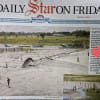
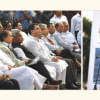
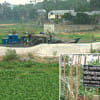
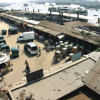
Comments